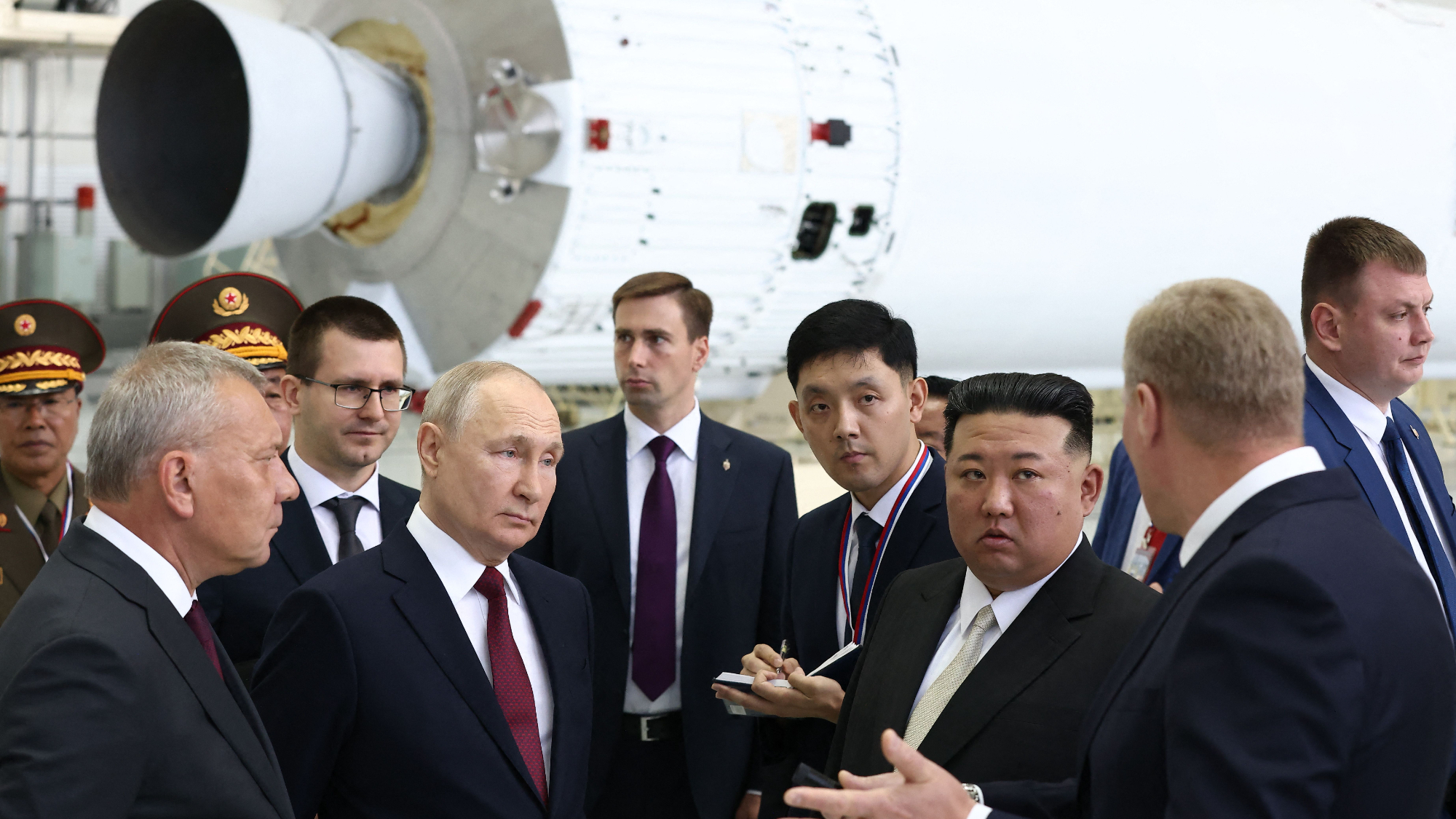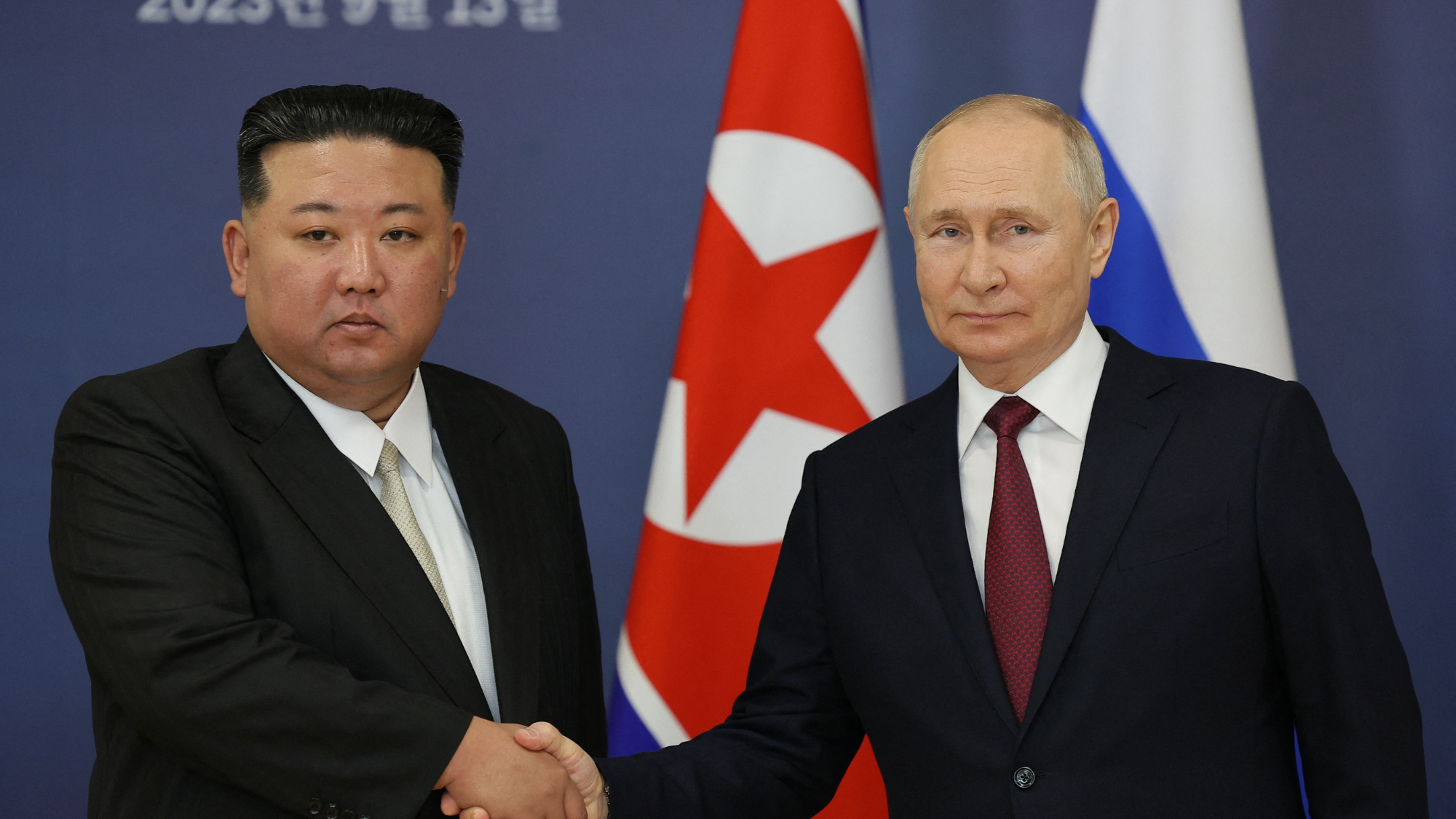Vladimir Putin meets North Korea's Kim Jong-un at Russia's Vostochny Cosmodrome spaceport for 5-hour summit
The isolated countries reportedly discussed space technology and potential partnerships.

Russian President Vladimir Putin met with North Korean leader Kim Jong Un at a spaceport on Wednesday (Sept. 13), likely discussing a range of possibilities for space-related cooperation.
The leaders of the internationally isolated countries met for a five-hour summit at Russia's Vostochny Cosmodrome, in the far east of the country.
The talks between the pair attracted global attention amid Russia's ongoing invasion of Ukraine and the possibility of deepened military cooperation between the two countries — particularly Moscow seeking to obtain artillery and ammunition to support its war effort.
Related: Russia's invasion of Ukraine as seen in satellite photos

The meeting and its setting highlighted that space exchanges were to be discussed between Russia and the Democratic People's Republic of Korea (DPRK). The leaders observed a new Soyuz-2 rocket launch facility from a viewing area during the visit, according to press reports.
The BBC noted that Putin told reporters that "the leader of the DPRK shows great interest in rocket engineering."
Rockets for launching satellites are similar in many ways to intercontinental ballistic missiles (ICBM) that can launch nuclear payloads. While launch vehicles insert satellites into particular orbits, ICBMs remain suborbital and release payloads that then fall to Earth on ballistic trajectories. North Korea — which, notably, has developed nuclear weapons and is looking to improve its delivery systems — is likely interested in both.
Get the Space.com Newsletter
Breaking space news, the latest updates on rocket launches, skywatching events and more!
North Korea has failed with two attempts to launch spy satellites this year, and its last remaining — and already defunct — satellite is expected to reenter Earth's atmosphere within days.
As well as improving its rocket technology, the reclusive state may also be seeking assistance for its satellite programs.
The AP reported that Thae Song, chairman of North Korea's space science and technology committee, was among the delegation in Russia, suggesting that possible Russian assistance for space systems such as spy satellites may have been discussed.
Imagery from space can provide information on adversaries' military-related activities and movements and inform planning and national defense strategies.
The summit also generated unconfirmed speculation that the pair could collaborate to send North Korean astronauts to space.
Russian social media sources discuss a possibility of a joint Russo-North-Korean orbital crew mission, assuming it would avoid the #ISS. I guess a 2-3-day autonomous mission is theoretically feasible, with some safety margins.September 13, 2023
Reporter and author Anatoly Zak, who runs RussianSpaceWeb.com, tweeted that a short-duration orbital joint crewed mission on a Russian Soyuz spacecraft was one speculative possibility. A more antagonistic approach would see Russia carry North Korean astronauts to the International Space Station (ISS). Such a proposal would be met by strong opposition by other ISS partners, particularly the United States.
Russia has lost a number of space cooperation partners and customers following its decision to invade Ukraine in February 2022. The country is currently training an astronaut from Belarus, another largely isolated, authoritarian nation, to travel to the ISS in March 2023.
Join our Space Forums to keep talking space on the latest missions, night sky and more! And if you have a news tip, correction or comment, let us know at: community@space.com.

Andrew is a freelance space journalist with a focus on reporting on China's rapidly growing space sector. He began writing for Space.com in 2019 and writes for SpaceNews, IEEE Spectrum, National Geographic, Sky & Telescope, New Scientist and others. Andrew first caught the space bug when, as a youngster, he saw Voyager images of other worlds in our solar system for the first time. Away from space, Andrew enjoys trail running in the forests of Finland. You can follow him on Twitter @AJ_FI.









